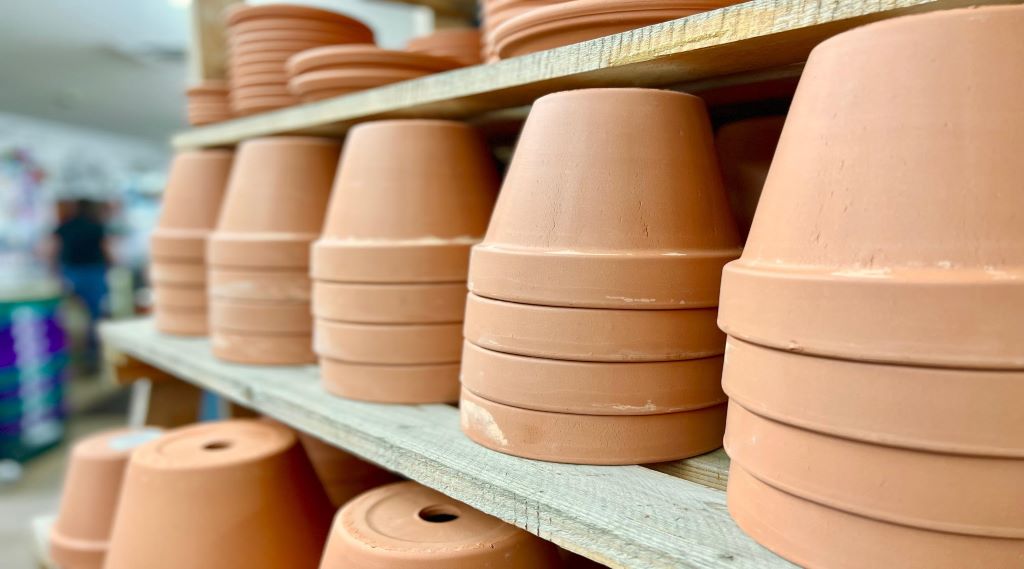Small Pot Sizes, Mighty Plants
Here in the nursery at Rick’s Garden Center, we tend towards smaller pot sizes. In the nursery business, pots are sized according (loosely) to their volume in gallons. A #5 pot, therefore, holds roughly 5 gallons of soil. It should be noted that these sizes are not standardized; a #5 pot can be anywhere from 3.4 to 5.4 gallons. Our shrubs are typically in the #2 to #5 pot size, and our trees tend to be #5 to #15. These sizes are smaller than what some other nurseries offer, especially in trees. There are a handful of good reasons for this, and I’d like to explore those with you now.
First is affordability. Smaller-sized pots hold smaller plants, and smaller plants cost less. The less I spend on any one plant, the more plants I can buy. It’s important to us at Rick’s to get plants into the hands of as many people as possible, and keeping our nursery stock small in size helps us accomplish this. Smaller pots even pay off in sweat equity; a smaller rootball means a smaller hole to dig and much less weight to move around. Planting small can save both your wallet and your back.
Another reason has everything to do with establishment. Establishment is the magic moment when your plant reaches outside its root ball and lays new roots in the surrounding soil. Smaller trees and shrubs establish faster and use less water in the process. Trees typically take one year per inch of caliper to establish. Caliper is the measure of the trunk’s diameter 6 inches above the soil line. That is to say, a 1” caliper tree will take one year to reach establishment, while a 2.5” caliper will take 2.5 years or more. This means that a #5 pot tree will catch up, and possibly eclipse the growth of a #15 pot tree since the #5 pot tree will establish much faster than the #15 pot tree will. Also, it takes much less water to soak a #5-sized root ball compared to a #15 or larger pot size. Multiply that by the number of times you need to water your plant until it establishes, and the water savings from planting small becomes apparent–especially when you consider the establishment period is much longer for larger plants. At Rick’s, we believe that water-wise landscaping practices should be the norm.
Finally, by keeping smaller pot sizes we can carry more varieties of plants. Our footprint at Rick’s nursery is modest compared to other nurseries. Keeping pot sizes small means we can fit more plants in the same space, which equates to more awesome varieties of trees and shrubs for you to shop. In this nursery, we think variety is the spice of life, and we like our plant selections to be as spicy as possible!
In the end, the only argument in favor of planting large specimens is our need for instant gratification. The impact a large specimen plant can make on a new landscape is undeniable; however, we hope that this blog post inspires you to consider a smaller pot size for your next landscape plant purchase. Happy planting!

Back to Blog